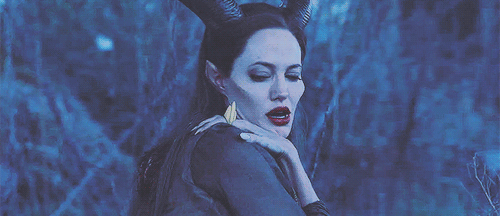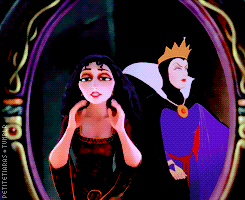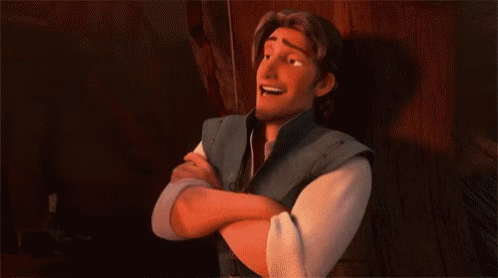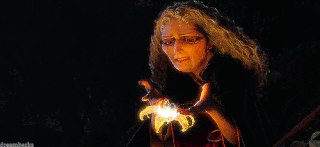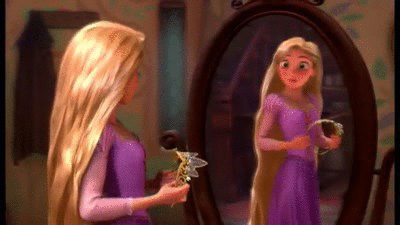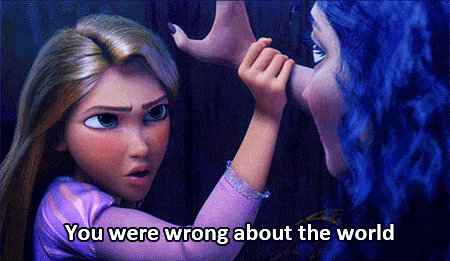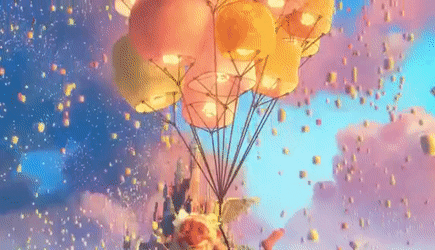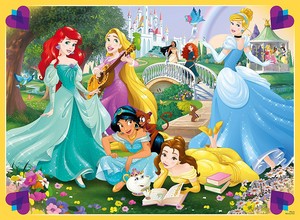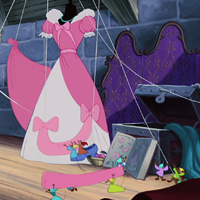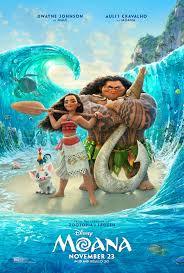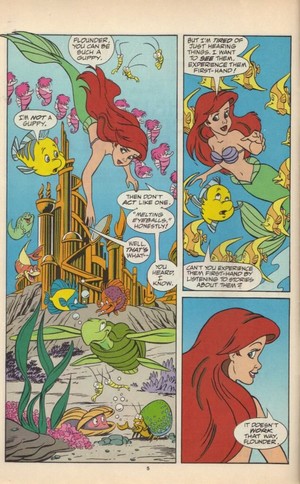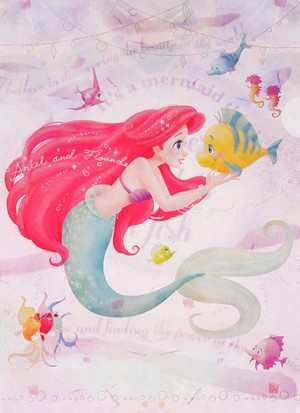Hello! It's been a while, but I randomly had this thought and no real place to share it. I know the title sounds a bit outlandish, but I think my theory may have some merit.
To understand the Rapunzel story fully, we have to understand the origin of the fairytale and what its morals might be for the time it was created. The original german fairytale about a poor man stealing rampion plants from a witch has been heavily connected to possible sexual assault and the witch as a cultural icon has always been linked to a bitter older spinster woman, who usually never found a husband and was therefor deemed the town witch. Stealing the baby back in retaliation could be her protecting the baby that comes from that sexual assault and being overprotective, hence the tower. People speculate over that. Others simple consider it a tale that warns against stealing and perhaps overprotection of one's child. Disney in all their renditions of Rapunzel whether it be from Into the Woods, Once Upon a Time, or Tangled, most heavily connect the witch to being wronged by a man. Even going as far as in 'Into the Woods' included the witch outrightly saying "He was robbing me, Raping me!" in the song Witch's Entrance when refering to Rapunzel's real father.
A garden as a literary device has been used as a metaphor for virginity in almost every culture across the globe, so it's not a stretch to say blatantly that is is a metaphor. I also think the fact that in many renditions it's the witch's job by her mother to "guard" the garden also solidifies this assumption. It's common in many renditions of the witch, from Maleficent, The Love Witch, to even The Craft, that the witch is a character who is wronged by a man and takes this bitterness out on the younger generation of women, i.e. a princess or our female protagonist. Studying the history of the witch in cinema, it has always been meant to demonize her and women like her who may experience resentment towards a young woman or resentment and overprotection regarding men. Disney has picked up on the modern analysis of the witch and revamped most of their female villains into misunderstood hurt or wounded people. Maleficent for example falls in love with Aurora as a means to protect her and reverses her own curse. The scene where she loses her wings is vital to reclaiming the men as the true villains of the story.
That being said, Disney's Rapunzel stories all leave the witch the villain. She is still the bad guy that falls to her death at the end of every Rapunzel story. Why? It was her rampion that has been stolen, and we've already made the connection to her garden being trampled and sexual assault. So why does the witch seem to still be condemned to this tragic fate?
Tangled changes the Rapunzel story fundamentally. Instead of it being rampion that is stolen, it's a crown. Instead of it being the witch that is stolen from, it is the royal family, the King and Queen respectively as they are both alive and longing for their child to be found. Tangled makes the family unit of a husband and wife the true victims of the story. Mother Gothel is simply an old woman who has experienced the natural course of life and is so vein and selfish, she wants to hoard that power of beauty and youth all for herself. This is another rendition of the witch, as her powers make her deceptive as though she is actively hiding her wickedness through beauty by being "alluring" and gorgeous to the eyes of men. Why the witch values this superficiality, I'm not sure. The metaphorical relevance of the witch being vein is lost on me, but perhaps it's an excuse as to why pretty women can also fall into the 'witch' category rather than the 'princess' category.
The argument can be made for Mother Gothel that she is still being robbed from, She found the flower, it's hers, and she's been using it, yes for her own personal gain, but maybe for better treatment in society as a beautiful woman. However this is contested in the movie as she never once uses her beauty to allure or bewitch men, it seems as though she mainly uses pure wit and trickery, in some scenes simply using a knife. While she does occasionally play victim at first, I don't see any real reason that requires beauty or why it would be any less effective as an old woman. She doesn't use her beauty for any advantage, she doesn't use it to get men, she doesn't use it for anything really, not even deception. Just her basic appearance. From this we can conclude Gothel is purely vein character and therefor purely evil (duh). She has no reason for wanting to stay beautiful other than her personal desires and I suppose the innate fascination with living forever.
The flower is also portrayed as being out in the open for anyone or perhaps anyone to use, thus taking away the justification she's being robbed from in her own personal garden. She has simply hoarding something that could save lives for herself after she's had more than her fair share of youth, presumably thousands of years of it.
When the power is transferred to someone else, she becomes the thief. The language that's used to even describe the action of who is stealing is changed. It goes from Rapunzel's father trampling the witch's garden in the night stealing her precious rampion to her becoming the thief in the night that steals something that was never truly hers. In the original her taking Rapunzel is slightly more justified. I want to make the assumption that this is makes the "stealing" in this story and true theft and not a metaphor for sexual assault. It's a pretty straightforward kidnapping.
Which brings me to the introduction of Flynn Rider. They replace the character of the prince, with a thief. I couldn't help but wonder why that was... of all things why a thief? I know Disney did that before with Aladdin, after all it wouldn't be unorthodox to portray a 'hero' also as thief, but why specifically a thief that's stolen from the King and Queen before? This question is really the meat of this article. You have a witch that's stolen (albeit an entire baby and royal heir) from the King and Queen and a roguish criminal outlaw that's also stolen something of value from Rapunzel's parents, and yet the man is the love interest and the woman is the villain. That's quite odd. While I can appreciate Disney's efforts to change up the story to a more modern and less offensive story archetype, I can't get over why they made Rapunzel's love interest a thief. Not only does it distort the metaphor of the original, but it makes the hero and the villain essentially equals in the morals department.
Flynn's character development is integral him not being seen as creepy and for the story to not be full of mixed messages. His development is why I think the crown itself represents Rapunzel's virginity and or sexuality. While not a garden, it has many similarities to the original story of taking something precious and of value from the witch, from the Queen and most importantly from Rapunzel. In the original fairytale, Rapunzel's father is the thief and can be discarded as character after that. He has no effect on her life and her future with the prince, his only crime is towards the witch. Switching these roles and making the father a shinning king awaiting his daughter's return while the love interest is the thief implicates that it is Flynn that wants something from Rapunzel rather than the father ever wanting anything from the witch. It shifts blame for why the witch is the way that she is, and makes it purely the witch's fault for taking Rapunzel. Flynn is stealing from Rapunzel. After all the crown is hers, it's simply living at her parent's house. Him stealing it initially is plainly a device to (unknowningly) give it to its rightful owner, which is Rapunzel. The power is now in Rapunzel's hands, it's not being guarded by her parents anymore and this man wants it for himself. The ball is in her court so to speak. Having been raised by Gothel to be scared of men, now that she is confronted with the motives of one, she can now decide whether she believes Gothel or not. It's also important to note Rapunzel is 18, not 16 like most of the other princesses. 18, and she deliberately states this, as it is specifically the legal age of consent in America. It's the perfect age to avoid backlash that Disney has received in the past for making young women/girls defy their parents and chase after a man Ariel openly saying she was 16 might've passed in the U.K, but she is still underage. These are the only two princess to ever state their age in their movies as well.
In the movie, Rapunzel is made aware of what Flynn wants and is willing to give that to him, after she's had her taste of freedom. In the olden days, girls were kept from going outside until they were married off so they didn't look promiscuous. In this case Rapunzel wants her freedom first with the promise that she will give Flynn the crown back, unbeknownst to her that it is actually her crown the entire time. In a way she is being chastised by both sides. You have the King and Queen and their royal guards trying to find both her and the crown, and you have Gothel who is only trying to find her for personal gain and using the crown and fear mongering as tactics to keep Rapunzel as a status symbol. It's almost as if Rapunzel coming out into her own and being a young in the prime of her life solidifies Gothel being deemed an old hag forever. The next generation coming of age, means the previous generation is official old produce and not in season. And as we know, Gothel likes to stay in season.
When Gothel discovers the crown she has to go on a journey to find out Rapunzel willingly left the tower on her own accord, but pieces together that the crown is the only reason she is currently being allowed freedom and protection from this man. Gothel also leverages the crown to two thieves, maybe this exemplifies her disinterest in material value, sexual value or otherwise? Is this an example of Gothel using her sexuality to coerce men to do what she wants? I think it ties in to why she basically lets Rapunzel get kidnapped by them, it still it merely a representation of Rapunzel's sexuality, and she promises Rapunzel to hoodlums in order to rescue her from them to solidify her possession of the 'golden flower.'
That's another thing; She calls Rapunzel her flower. This flower is both Gothel and Rapunzel's secret. Rapunzel is even hesitant to tell Flynn about it. After all one thing I've been ignoring in this giant essay comparing crowns and gardens to virginity is the glaringly obvious fact it's the flower itself that represents youth and healing, growing etc. And has largely been connected to a woman's sexuality throughout history. Surely, this is the true metaphor virginity and all that other crap I've been typing on and on about. But I don't think so. The flower's power transfers from person to person, from Gothel, to the Queen, to Rapunzel, and Rapunzel can use its power to save anyone, in this movie she only passes it to Flynn. If the flower were representative of anything other than a plot Deus Ex Machina / Fountain of Youth it would simply be youth itself. It doesn't work as a tool for exchange or a lesson, some other interpretation of it simply doesn't coast.
I am making the connection to the crown because it is specifically Rapunzel's. It's a story about Rapunzel and Rapunzel's journey in finding her true self, not being scared to go outside and take risks. In the original German fairytale she didn't have this, she had a much more reductive role. In her sexuality being found by the prince without any freedom given to her, it was a much more reductive role for woman, there's no way some 16th century author would have her break out and find her own love interest. She is in a way invaded, though sleeping with the prince is framed as her choice, She's thrown out for showing she partakes in sexual activity when she's pregnant, whether the witch knows this to be consensual or not, she punishes Rapunzel for it as in her eyes this makes her corrupted. She also punishes the prince, so it's safe to say she think both of them engaging in sex was an awful offense that both need to be punished for.
Tangled makes the love interest more of a pawn. In both cases the love interest finds her and "corrupts" her against the witch, but as Gothel still wants Rapunzel's golden flower Gothel is not the one the scorn Rapunzel and punish her. Her device is to deceive Rapunzel into thinking she's right. In the classic fairytale Rapunzel is naive and already knows due to her love with the prince he isn't dangerous, and if he was just trying to use her, it's too late as she is pregnant, the witch simply discards her. Tangled gives Rapunzel the opportunity to remain a virgin tucked away in her tower in fear of men while regaining the witch's trust. This becomes her choice. This is why the crown is representative of her sexuality. She is no longer simply found and taken away by her love interest. She sets the terms of when and where she is being taken and when or if she wants to be taken back to her tower at any time.
The biggest evidence I have for The Crown Metaphor™ is when Rapunzel is confronted in the woods by Gothel. Rapunzel seems to think her and now Eugene have made a deep emotional connection. Rapunzel can see them being together like a couple, and Gothel says "This is why he's here! Don't let him deceive you! Give it to him, watch, you'll see" While holding the crown. "Trust me my dear, *snaps* that's how fast he'll leave you, I won't say I told you so!" Rapunzel is shocked by the fact Gothel has the crown, but it was so very poorly hidden in the first place. Anyways this conversation I feel is very common among girls and their parents. Many parents warn that boys just want sex from girls, and once they have that they will no longer have interest. Once this is said Rapunzel is guarded again around Eugene.
This is what makes the lantern scene really powerful. After all of the fear mongering from Gothel, after revealing her secret, she has this magical moment with Flynn/Eugene and finally decides that she can trust him enough with the crown and he wont leave. He breaks down her walls completely this time. By all means, it's a leap of faith, but Flynn himself puts crown down and away to focus on Rapunzel genuinely wanting her to have a good time under the lanterns, because he's now in love with her. This is conveyed as a pure and true love now that his initial intentions have been put to the side. This is a much better way for the leads to get together as it obviously isn't just about physical attraction. They had to grow to like each other over the course of time spent together. Like so many other fairytales where it's instant attraction and a kiss this is built on love and time spent together. So much so that the original reason for Eugene's motives doesn't matter to him anymore and they don't even kiss. This development is crucial from him going from a thief that is only ever looking out for his own personal gain, to someone who looks out for Rapunzel and her best interests. Once he rejects the crown in favor for Rapunzel, his feelings are solidified. Gothel still frames him for taking the crown and leaving so Rapunzel feels betrayed, regardless.
Her realizing she's a princess back at the tower, may be her standing up for herself against her internalized guilt for betraying Gothel and not listening to her. This could mean that all isn't lost just because one guy betrayed her trust, she still has power and autonomy and most importantly still wants freedom from being controlled by Gothel even if this boy did betray her. He can have the crown, because now she's a princess. Whether these men are good or bad only after her crown, she remains a princess. What is there left to protect now? She doesn't feel shame in being betrayed by the man, and she has "lost her innocence" she know men don't have pointy teeth. There's nothing to shelter her from anymore, there's no more space to foster naiveté. Rapunzel still wants freedom, and her realizing she's a princess is realizing her value regardless of whether she has the crown or not and that she still doesn't want to be sheltered by Gothel even if Flynn did betray her.
People usually criticize the realization scene in the movie for being obscure as to why she'd suddenly realize she's the princess after 'subconsciously painting' the sun symbol all over her room. It is a bit nonsensical if you take it literally. What are the chances even as a baby or toddler she remembers the symbol above her cradle that she witnessed for a single night after being born and subsequently kidnapped. It doesn't make much sense, though in a world with magic hair and newborns with object permanence one can stretch their imagination. Speaking logically using the crown as a metaphor for sexuality, and in tandem, her true identity as a princess meaning she is liberated (whether sexually or not), it makes much more sense how she suddenly realized it while reflecting on her day and any possible regrets. She didn't have any. This liberation was hers all along.
When Eugene escapes to give Rapunzel her freedom and in doing so, cuts her hair to free her, he reveals that he also doesn't place value on her magic powers, her appearance or her hair, which many view as a symbol of their femininity. He purely cares for Rapunzels freedom and well-being even while dying. He loves Rapunzel genuinely, not for superficial or otherwise external reasons. Not for the hope of the crown. At this point I believe he's unaware of her being the princess. The movie ends with him playfully taking her crown and giving it back, which shows a healthy and loving relationship between the two of them where the exchange and ownship of Rapunzel's crown is hers and Eugene is at liberty to be playful.
This deviation from its source material makes Rapunzel the sole reason Eugene is justified in the end. Eugene becomes a pure hero, not motivated by the allure of a beautiful girl in a tower like the prince, but by his love for her well-being. Being a thief made him open about his intentions unlike the prince from the original who is implied to be justified from introduction for his interest in Rapunzel simply by virtue of being the prince/savior archetype, despite him leaving Rapunzel in the tower and only coming by to sleep with with her until it's clear she's pregnant. That's a long time of simply leaving Rapunzel in the hands of the witch, trapped up in her tower waiting for him to conveniently stop by when he feels like to satisfy his desires. In Tangled, Eugene earns his interest in Rapunzel, and proves himself and his love for Rapunzel to be more than his desires. This is why the crown is a metaphor for Rapunzel's sexuality. And this is why Tangled is a perfect revisioning for this story and its themes in the modern era.
Feel free to tell me what your thoughts are on this concept. It can seem outlandish at first, but doing more research on Rapunzel's origins really had it dissecting the current messaging of her story through the lens of the original authors. We all know what Little Red Riding Hood and Goldie Locks were trying to teach kids, but we rarely talk about the other ones and there deeper themes. I appreciate any feedback!
To understand the Rapunzel story fully, we have to understand the origin of the fairytale and what its morals might be for the time it was created. The original german fairytale about a poor man stealing rampion plants from a witch has been heavily connected to possible sexual assault and the witch as a cultural icon has always been linked to a bitter older spinster woman, who usually never found a husband and was therefor deemed the town witch. Stealing the baby back in retaliation could be her protecting the baby that comes from that sexual assault and being overprotective, hence the tower. People speculate over that. Others simple consider it a tale that warns against stealing and perhaps overprotection of one's child. Disney in all their renditions of Rapunzel whether it be from Into the Woods, Once Upon a Time, or Tangled, most heavily connect the witch to being wronged by a man. Even going as far as in 'Into the Woods' included the witch outrightly saying "He was robbing me, Raping me!" in the song Witch's Entrance when refering to Rapunzel's real father.
A garden as a literary device has been used as a metaphor for virginity in almost every culture across the globe, so it's not a stretch to say blatantly that is is a metaphor. I also think the fact that in many renditions it's the witch's job by her mother to "guard" the garden also solidifies this assumption. It's common in many renditions of the witch, from Maleficent, The Love Witch, to even The Craft, that the witch is a character who is wronged by a man and takes this bitterness out on the younger generation of women, i.e. a princess or our female protagonist. Studying the history of the witch in cinema, it has always been meant to demonize her and women like her who may experience resentment towards a young woman or resentment and overprotection regarding men. Disney has picked up on the modern analysis of the witch and revamped most of their female villains into misunderstood hurt or wounded people. Maleficent for example falls in love with Aurora as a means to protect her and reverses her own curse. The scene where she loses her wings is vital to reclaiming the men as the true villains of the story.
That being said, Disney's Rapunzel stories all leave the witch the villain. She is still the bad guy that falls to her death at the end of every Rapunzel story. Why? It was her rampion that has been stolen, and we've already made the connection to her garden being trampled and sexual assault. So why does the witch seem to still be condemned to this tragic fate?
Tangled changes the Rapunzel story fundamentally. Instead of it being rampion that is stolen, it's a crown. Instead of it being the witch that is stolen from, it is the royal family, the King and Queen respectively as they are both alive and longing for their child to be found. Tangled makes the family unit of a husband and wife the true victims of the story. Mother Gothel is simply an old woman who has experienced the natural course of life and is so vein and selfish, she wants to hoard that power of beauty and youth all for herself. This is another rendition of the witch, as her powers make her deceptive as though she is actively hiding her wickedness through beauty by being "alluring" and gorgeous to the eyes of men. Why the witch values this superficiality, I'm not sure. The metaphorical relevance of the witch being vein is lost on me, but perhaps it's an excuse as to why pretty women can also fall into the 'witch' category rather than the 'princess' category.
The argument can be made for Mother Gothel that she is still being robbed from, She found the flower, it's hers, and she's been using it, yes for her own personal gain, but maybe for better treatment in society as a beautiful woman. However this is contested in the movie as she never once uses her beauty to allure or bewitch men, it seems as though she mainly uses pure wit and trickery, in some scenes simply using a knife. While she does occasionally play victim at first, I don't see any real reason that requires beauty or why it would be any less effective as an old woman. She doesn't use her beauty for any advantage, she doesn't use it to get men, she doesn't use it for anything really, not even deception. Just her basic appearance. From this we can conclude Gothel is purely vein character and therefor purely evil (duh). She has no reason for wanting to stay beautiful other than her personal desires and I suppose the innate fascination with living forever.
The flower is also portrayed as being out in the open for anyone or perhaps anyone to use, thus taking away the justification she's being robbed from in her own personal garden. She has simply hoarding something that could save lives for herself after she's had more than her fair share of youth, presumably thousands of years of it.
When the power is transferred to someone else, she becomes the thief. The language that's used to even describe the action of who is stealing is changed. It goes from Rapunzel's father trampling the witch's garden in the night stealing her precious rampion to her becoming the thief in the night that steals something that was never truly hers. In the original her taking Rapunzel is slightly more justified. I want to make the assumption that this is makes the "stealing" in this story and true theft and not a metaphor for sexual assault. It's a pretty straightforward kidnapping.
Which brings me to the introduction of Flynn Rider. They replace the character of the prince, with a thief. I couldn't help but wonder why that was... of all things why a thief? I know Disney did that before with Aladdin, after all it wouldn't be unorthodox to portray a 'hero' also as thief, but why specifically a thief that's stolen from the King and Queen before? This question is really the meat of this article. You have a witch that's stolen (albeit an entire baby and royal heir) from the King and Queen and a roguish criminal outlaw that's also stolen something of value from Rapunzel's parents, and yet the man is the love interest and the woman is the villain. That's quite odd. While I can appreciate Disney's efforts to change up the story to a more modern and less offensive story archetype, I can't get over why they made Rapunzel's love interest a thief. Not only does it distort the metaphor of the original, but it makes the hero and the villain essentially equals in the morals department.
Flynn's character development is integral him not being seen as creepy and for the story to not be full of mixed messages. His development is why I think the crown itself represents Rapunzel's virginity and or sexuality. While not a garden, it has many similarities to the original story of taking something precious and of value from the witch, from the Queen and most importantly from Rapunzel. In the original fairytale, Rapunzel's father is the thief and can be discarded as character after that. He has no effect on her life and her future with the prince, his only crime is towards the witch. Switching these roles and making the father a shinning king awaiting his daughter's return while the love interest is the thief implicates that it is Flynn that wants something from Rapunzel rather than the father ever wanting anything from the witch. It shifts blame for why the witch is the way that she is, and makes it purely the witch's fault for taking Rapunzel. Flynn is stealing from Rapunzel. After all the crown is hers, it's simply living at her parent's house. Him stealing it initially is plainly a device to (unknowningly) give it to its rightful owner, which is Rapunzel. The power is now in Rapunzel's hands, it's not being guarded by her parents anymore and this man wants it for himself. The ball is in her court so to speak. Having been raised by Gothel to be scared of men, now that she is confronted with the motives of one, she can now decide whether she believes Gothel or not. It's also important to note Rapunzel is 18, not 16 like most of the other princesses. 18, and she deliberately states this, as it is specifically the legal age of consent in America. It's the perfect age to avoid backlash that Disney has received in the past for making young women/girls defy their parents and chase after a man Ariel openly saying she was 16 might've passed in the U.K, but she is still underage. These are the only two princess to ever state their age in their movies as well.
In the movie, Rapunzel is made aware of what Flynn wants and is willing to give that to him, after she's had her taste of freedom. In the olden days, girls were kept from going outside until they were married off so they didn't look promiscuous. In this case Rapunzel wants her freedom first with the promise that she will give Flynn the crown back, unbeknownst to her that it is actually her crown the entire time. In a way she is being chastised by both sides. You have the King and Queen and their royal guards trying to find both her and the crown, and you have Gothel who is only trying to find her for personal gain and using the crown and fear mongering as tactics to keep Rapunzel as a status symbol. It's almost as if Rapunzel coming out into her own and being a young in the prime of her life solidifies Gothel being deemed an old hag forever. The next generation coming of age, means the previous generation is official old produce and not in season. And as we know, Gothel likes to stay in season.
When Gothel discovers the crown she has to go on a journey to find out Rapunzel willingly left the tower on her own accord, but pieces together that the crown is the only reason she is currently being allowed freedom and protection from this man. Gothel also leverages the crown to two thieves, maybe this exemplifies her disinterest in material value, sexual value or otherwise? Is this an example of Gothel using her sexuality to coerce men to do what she wants? I think it ties in to why she basically lets Rapunzel get kidnapped by them, it still it merely a representation of Rapunzel's sexuality, and she promises Rapunzel to hoodlums in order to rescue her from them to solidify her possession of the 'golden flower.'
That's another thing; She calls Rapunzel her flower. This flower is both Gothel and Rapunzel's secret. Rapunzel is even hesitant to tell Flynn about it. After all one thing I've been ignoring in this giant essay comparing crowns and gardens to virginity is the glaringly obvious fact it's the flower itself that represents youth and healing, growing etc. And has largely been connected to a woman's sexuality throughout history. Surely, this is the true metaphor virginity and all that other crap I've been typing on and on about. But I don't think so. The flower's power transfers from person to person, from Gothel, to the Queen, to Rapunzel, and Rapunzel can use its power to save anyone, in this movie she only passes it to Flynn. If the flower were representative of anything other than a plot Deus Ex Machina / Fountain of Youth it would simply be youth itself. It doesn't work as a tool for exchange or a lesson, some other interpretation of it simply doesn't coast.
I am making the connection to the crown because it is specifically Rapunzel's. It's a story about Rapunzel and Rapunzel's journey in finding her true self, not being scared to go outside and take risks. In the original German fairytale she didn't have this, she had a much more reductive role. In her sexuality being found by the prince without any freedom given to her, it was a much more reductive role for woman, there's no way some 16th century author would have her break out and find her own love interest. She is in a way invaded, though sleeping with the prince is framed as her choice, She's thrown out for showing she partakes in sexual activity when she's pregnant, whether the witch knows this to be consensual or not, she punishes Rapunzel for it as in her eyes this makes her corrupted. She also punishes the prince, so it's safe to say she think both of them engaging in sex was an awful offense that both need to be punished for.
Tangled makes the love interest more of a pawn. In both cases the love interest finds her and "corrupts" her against the witch, but as Gothel still wants Rapunzel's golden flower Gothel is not the one the scorn Rapunzel and punish her. Her device is to deceive Rapunzel into thinking she's right. In the classic fairytale Rapunzel is naive and already knows due to her love with the prince he isn't dangerous, and if he was just trying to use her, it's too late as she is pregnant, the witch simply discards her. Tangled gives Rapunzel the opportunity to remain a virgin tucked away in her tower in fear of men while regaining the witch's trust. This becomes her choice. This is why the crown is representative of her sexuality. She is no longer simply found and taken away by her love interest. She sets the terms of when and where she is being taken and when or if she wants to be taken back to her tower at any time.
The biggest evidence I have for The Crown Metaphor™ is when Rapunzel is confronted in the woods by Gothel. Rapunzel seems to think her and now Eugene have made a deep emotional connection. Rapunzel can see them being together like a couple, and Gothel says "This is why he's here! Don't let him deceive you! Give it to him, watch, you'll see" While holding the crown. "Trust me my dear, *snaps* that's how fast he'll leave you, I won't say I told you so!" Rapunzel is shocked by the fact Gothel has the crown, but it was so very poorly hidden in the first place. Anyways this conversation I feel is very common among girls and their parents. Many parents warn that boys just want sex from girls, and once they have that they will no longer have interest. Once this is said Rapunzel is guarded again around Eugene.
This is what makes the lantern scene really powerful. After all of the fear mongering from Gothel, after revealing her secret, she has this magical moment with Flynn/Eugene and finally decides that she can trust him enough with the crown and he wont leave. He breaks down her walls completely this time. By all means, it's a leap of faith, but Flynn himself puts crown down and away to focus on Rapunzel genuinely wanting her to have a good time under the lanterns, because he's now in love with her. This is conveyed as a pure and true love now that his initial intentions have been put to the side. This is a much better way for the leads to get together as it obviously isn't just about physical attraction. They had to grow to like each other over the course of time spent together. Like so many other fairytales where it's instant attraction and a kiss this is built on love and time spent together. So much so that the original reason for Eugene's motives doesn't matter to him anymore and they don't even kiss. This development is crucial from him going from a thief that is only ever looking out for his own personal gain, to someone who looks out for Rapunzel and her best interests. Once he rejects the crown in favor for Rapunzel, his feelings are solidified. Gothel still frames him for taking the crown and leaving so Rapunzel feels betrayed, regardless.
Her realizing she's a princess back at the tower, may be her standing up for herself against her internalized guilt for betraying Gothel and not listening to her. This could mean that all isn't lost just because one guy betrayed her trust, she still has power and autonomy and most importantly still wants freedom from being controlled by Gothel even if this boy did betray her. He can have the crown, because now she's a princess. Whether these men are good or bad only after her crown, she remains a princess. What is there left to protect now? She doesn't feel shame in being betrayed by the man, and she has "lost her innocence" she know men don't have pointy teeth. There's nothing to shelter her from anymore, there's no more space to foster naiveté. Rapunzel still wants freedom, and her realizing she's a princess is realizing her value regardless of whether she has the crown or not and that she still doesn't want to be sheltered by Gothel even if Flynn did betray her.
People usually criticize the realization scene in the movie for being obscure as to why she'd suddenly realize she's the princess after 'subconsciously painting' the sun symbol all over her room. It is a bit nonsensical if you take it literally. What are the chances even as a baby or toddler she remembers the symbol above her cradle that she witnessed for a single night after being born and subsequently kidnapped. It doesn't make much sense, though in a world with magic hair and newborns with object permanence one can stretch their imagination. Speaking logically using the crown as a metaphor for sexuality, and in tandem, her true identity as a princess meaning she is liberated (whether sexually or not), it makes much more sense how she suddenly realized it while reflecting on her day and any possible regrets. She didn't have any. This liberation was hers all along.
When Eugene escapes to give Rapunzel her freedom and in doing so, cuts her hair to free her, he reveals that he also doesn't place value on her magic powers, her appearance or her hair, which many view as a symbol of their femininity. He purely cares for Rapunzels freedom and well-being even while dying. He loves Rapunzel genuinely, not for superficial or otherwise external reasons. Not for the hope of the crown. At this point I believe he's unaware of her being the princess. The movie ends with him playfully taking her crown and giving it back, which shows a healthy and loving relationship between the two of them where the exchange and ownship of Rapunzel's crown is hers and Eugene is at liberty to be playful.
This deviation from its source material makes Rapunzel the sole reason Eugene is justified in the end. Eugene becomes a pure hero, not motivated by the allure of a beautiful girl in a tower like the prince, but by his love for her well-being. Being a thief made him open about his intentions unlike the prince from the original who is implied to be justified from introduction for his interest in Rapunzel simply by virtue of being the prince/savior archetype, despite him leaving Rapunzel in the tower and only coming by to sleep with with her until it's clear she's pregnant. That's a long time of simply leaving Rapunzel in the hands of the witch, trapped up in her tower waiting for him to conveniently stop by when he feels like to satisfy his desires. In Tangled, Eugene earns his interest in Rapunzel, and proves himself and his love for Rapunzel to be more than his desires. This is why the crown is a metaphor for Rapunzel's sexuality. And this is why Tangled is a perfect revisioning for this story and its themes in the modern era.
Feel free to tell me what your thoughts are on this concept. It can seem outlandish at first, but doing more research on Rapunzel's origins really had it dissecting the current messaging of her story through the lens of the original authors. We all know what Little Red Riding Hood and Goldie Locks were trying to teach kids, but we rarely talk about the other ones and there deeper themes. I appreciate any feedback!
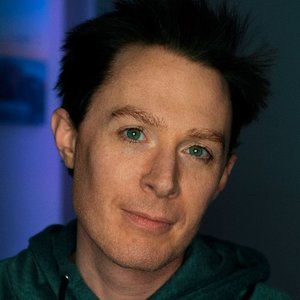
Clay! Your eyes!
The Way
Snow White, Cinderella, Aurora and Pocahontas will fit the song, especially when the respective love ones see them for the first time.
Without You
Taken from his 'A Thousand Different Ways' album, originally sung by Mariah Carey. Eric would sing this when he rescues Ariel and vice versa.
This is the Night
From the Beast's perspective, he reassures himself that this is the night to admit his love for Belle. Including Rapunzel/ Flynn, Aladdin/ Jasmine and Anna/ Kristoff.
Here You Come Again
Mulan and Shang will sing in the finale of the film, they could not hide feelings to each other.
Clay Aiken Fan, Anyone?
Do you like Clay Aiken and do you all agree with the choices?

Shaggy hairstyle??
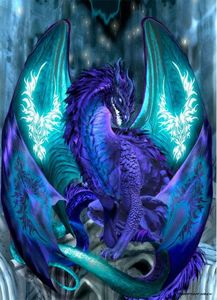
Cool one, isn't it?
Let Them Have It!
Of course, if Disney were to make a movie about them together. The fairy godmother will give them a dragon stone that will turn them into dragons with each special powers! It will make the story interesting.
Don't Take It!
The story will be to dark for a Disney film, unless if Disney could tone down the appearance of the dragons themselves.
Dragon or Not?
Here are my thoughts of this theory, so what do you think?
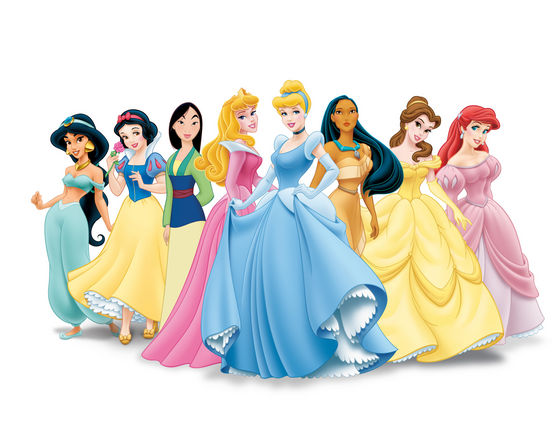
Dragon Mode?

Anna, how's the Middle East?
Hebrew (Einat Azulay)
Okay, She sounds relatively fresh and young. However, she sounds a bit heavy and stiff at certain parts, especially the first part of the chorus. (Ratings: 8.5/10
Arabic (Shorouq Salah)
I absolutely love Arabic music and their voices, unlike her Hebrew counterpart. She sounds smooth and it makes the audience relax and get along with Anna easily, especially in For the First Time in Forever! (Ratings:10/10)
For the First Time in Forever!
So, only 2 were feature because I'm not really sure who is the Persian actress for Anna sadly to say. Our final destination is the Americas!
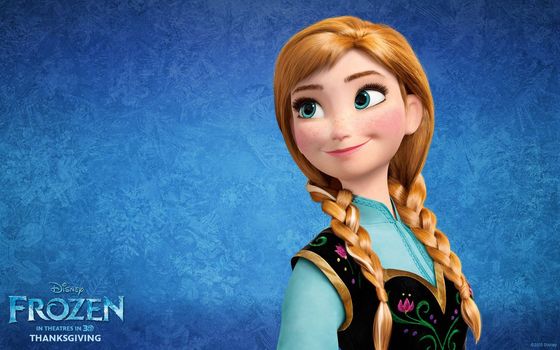
I'm happy for it!


